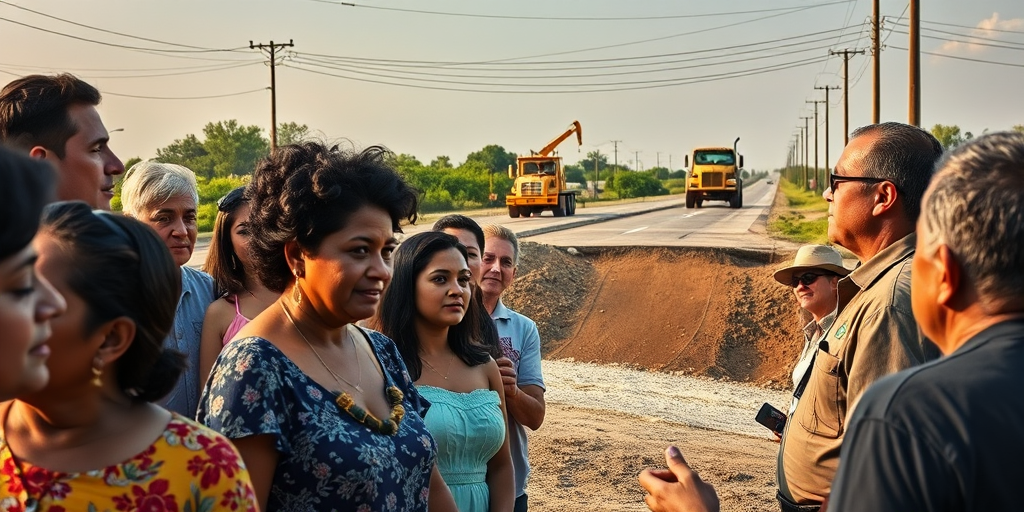Owners of Abby’s Bakery Found Guilty of Harboring and Employing Undocumented Immigrants
In a significant legal development, the owners of Abby’s Bakery in Edinburg have been found guilty of charges related to harboring and employing undocumented immigrants. This verdict not only underscores ongoing concerns about undocumented labor within the Rio Grande Valley (RGV), but also highlights broader socio-economic challenges faced by both business owners and workers in the region.
Case Background and Legal Proceedings
The investigation into Abby’s Bakery began after local authorities received a tip about potential violations related to undocumented workers. Subsequent inquiries led to a raid where officials discovered undocumented immigrants employed at the bakery under substandard working conditions.
During the trial, the prosecution presented evidence that the bakery’s owners knowingly employed individuals without legal documentation, offering them minimal pay and lacking proper employee protections. The defense argued that the owners were unaware of their employees’ undocumented status and acted in good faith, a claim the court ultimately rejected.
Local attorney Maria Rios explained, “This case was a stark reminder of the complexities businesses face in ensuring compliance with federal and state labor laws. However, it also highlighted a systemic issue within the employment landscape in South Texas, where economic pressures sometimes lead to such legal predicaments.”
Impact on Valley Residents and Businesses
For Valley residents, this verdict resonates on multiple levels. The Rio Grande Valley has a strong history of economic ties to agriculture and small businesses, often employing individuals from diverse backgrounds. While initiatives like “Made in the 956” highlight the RGV’s thriving local economy, cases like Abby’s Bakery underline challenges related to undocumented labor practices.
Economic expert Dr. Carlos Mendoza from the University of Texas Rio Grande Valley provides insight into the broader implications of this case. “The verdict is likely to deter other businesses from engaging in similar practices. However, it also raises important questions about the availability of labor and the economic factors driving such decisions,” he noted.
Furthermore, this case has sparked discussions about the need for supportive policies that address labor shortages while ensuring legal compliance. Community organizations are advocating for reforms that allow safer paths to employment and protect both workers’ rights and business owners’ interests.
Connections to Regional Issues
This case against Abby’s Bakery ties into broader socio-economic issues prevalent in the RGV, including discussions around immigration and employment stability. The region, straddling the U.S.-Mexico border, frequently finds itself at the heart of national immigration debates, influencing local policies and community dynamics.
As part of ongoing efforts to tackle these issues, Hidalgo County and other local authorities are working to ensure businesses have access to clear guidelines that aid compliance with employment laws. Increasing awareness and support for companies navigating these complex legal landscapes are crucial steps toward fostering economic resilience in the region.
Potential Implications and Future Steps
The implications of this verdict extend beyond its immediate legal context. It presents an opportunity for dialogue among policy makers, business owners, and community leaders about finding viable solutions to labor-related challenges. Partnerships aimed at offering resources for legal compliance, combined with fair labor practices, could strengthen community trust and support.
Linda Torres, a local community advocate, emphasized the importance of collaboration, stating, “We must work together as a community to create environments where businesses can thrive legally, offering fair opportunities to all workers. This case is a call to action, not only to prevent illegal practices but also to support sustainable economic growth.”
Resources and Community Support
For businesses seeking guidance on compliance with employment laws, local chambers of commerce and trade associations in the RGV offer workshops and resources aimed at promoting legal and ethical business operations.
Additionally, community members are encouraged to participate in initiatives like the “Heart of the Valley,” which work towards building stronger community-business relations through education and advocacy.
As the RGV continues to navigate complex economic and social terrains, cases like Abby’s Bakery serve as pivotal learning moments, reinforcing commitments to lawful, fair, and inclusive business practices. For the region, the goal remains clear: to foster a thriving economy that benefits all valley residents while adhering to both legal frameworks and moral imperatives.







